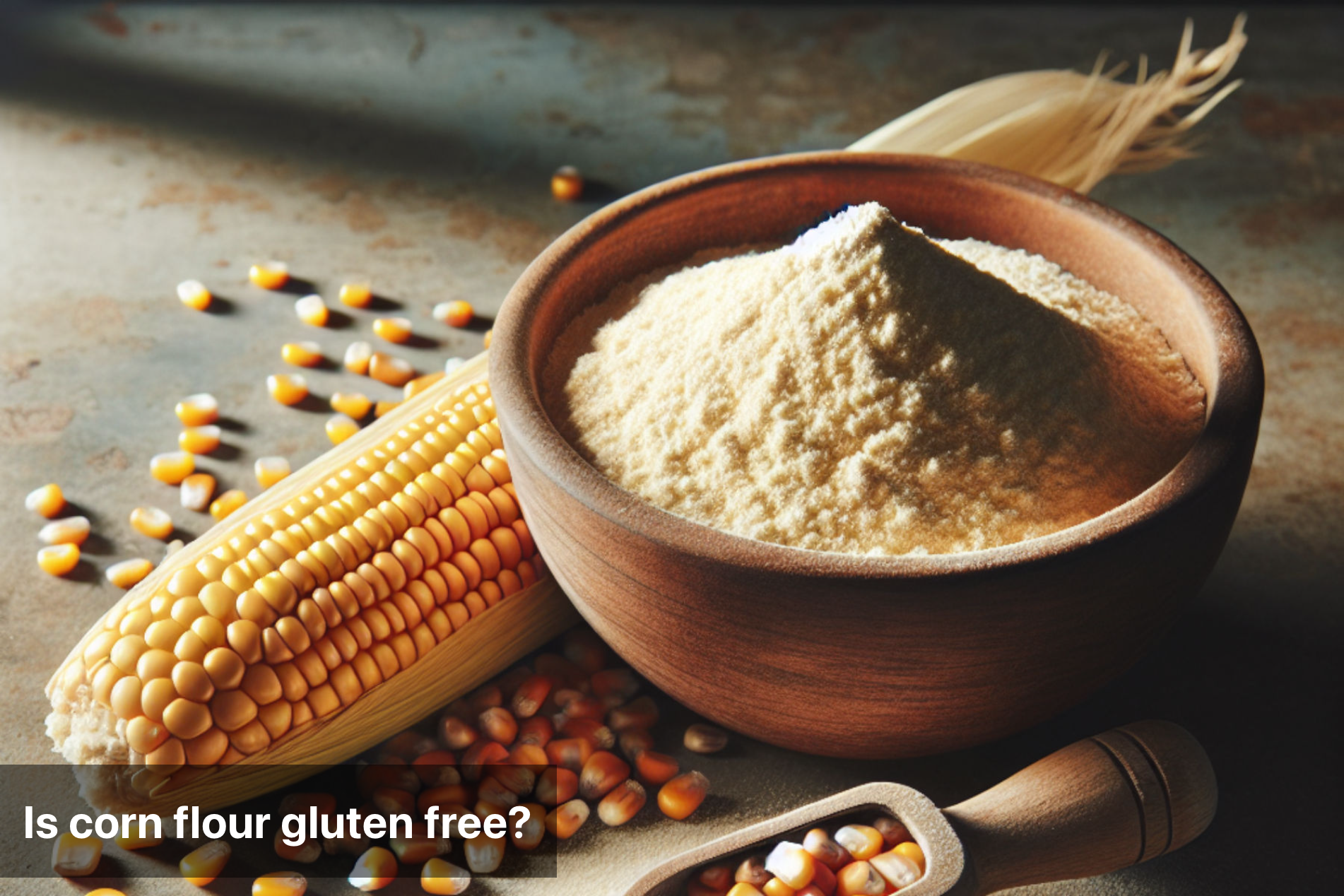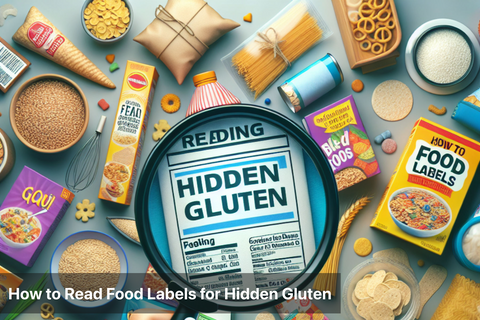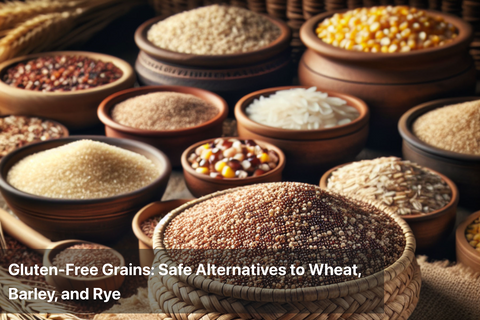
Is corn flour gluten free?
Maintaining a gluten-free diet is crucial for those with gluten sensitivity or Celiac disease to manage their symptoms effectively. It involves avoiding foods that contain gluten and opting for gluten-free alternatives. Corn flour, a staple in many cuisines, serves as a versatile gluten-free option for individuals with gluten-related conditions.
Its fine texture and mild flavor make it suitable for various recipes, from baking goods to thickening sauces. Understanding the role of gluten in diet and recognizing suitable alternatives like corn flour can help individuals navigate their dietary restrictions more easily and enjoy a fulfilling culinary experience.

What is Corn Flour?
-
Types of Corn Flour:
-
Cornstarch: A fine, white powder made from the starchy part of the corn kernel. It’s used primarily as a thickening agent in sauces, soups, and puddings.
-
Cornmeal: Made from ground whole corn kernels, it’s coarser than corn flour and used in baking and cooking for dishes like cornbread.
-
Corn Flour: Generally refers to a finer version of cornmeal, but not as fine as cornstarch. It’s used in baking and as a substitute for wheat flour in gluten-free recipes.
-
Nutritional Profile:
-
Corn flour is a good source of carbohydrates and provides some fiber, vitamins (like B vitamins), and minerals (such as iron and magnesium). However, it’s low in protein compared to other flours.
-
Uses in Cooking and Baking:
-
Thickening: Cornstarch (a type of corn flour) is used to thicken sauces, gravies, and soups.
-
Baking: Corn flour can be used to add texture to baked goods, such as cakes, muffins, and bread.
-
Coating: Corn flour can be used to coat foods before frying to give a crispy texture.
-
Gluten-Free Recipes: It’s often used in gluten-free baking as a substitute for wheat flour.
Is Corn Flour Gluten Free?
Yes, corn flour is naturally gluten-free because it is made from corn, which does not contain gluten. However, it’s important to check for potential cross-contamination if you have celiac disease or a severe gluten sensitivity.
Here are some considerations:
-
Cross-Contamination: Corn flour can sometimes be processed in facilities that also handle gluten-containing grains, which may lead to cross-contamination. To avoid this, look for corn flour labeled as “gluten-free” to ensure it’s processed in a dedicated gluten-free facility.
-
Check Labels: Always check the packaging for any gluten-free certification or statements. This is especially important for individuals with celiac disease or severe gluten intolerance.
-
Processing: Some products may use corn flour in combination with other ingredients or processing methods that could introduce gluten, so always verify the product’s ingredients and processing information.
Alternate Gluten-Free Flours
-
Almond Flour: Almond flour is a popular gluten-free alternative that adds a nutty flavor to dishes. It works well in both sweet and savory recipes, such as cakes, cookies, and breaded items.
-
Coconut Flour: Coconut flour is derived from dried coconut meat and is high in fiber and low in carbohydrates. It is commonly used in baked goods like muffins, pancakes, and quick breads.
-
Rice Flour: Rice flour, made from finely milled rice grains, is a versatile gluten-free option suitable for various recipes. It is ideal for thickening sauces, breading foods, and making noodles.
-
Quinoa Flour: Quinoa flour, produced by grinding quinoa seeds, is rich in protein and nutrients. It imparts a slightly earthy taste and can be used in baking, batters, and as a thickener.
-
Buckwheat Flour: Despite its name, buckwheat is not related to wheat and is naturally gluten-free. Buckwheat flour has a distinctive taste and is suitable for pancakes, soba noodles, and certain baked goods.
-
Tapioca Flour: Tapioca flour, also known as tapioca starch, is a versatile gluten-free thickener commonly used in desserts, soups, and sauces. It provides a chewy texture in baked goods.

Gluten-Free Corn Flour: Fact or Fiction?
It is evident that corn flour is naturally gluten-free, making it a safe choice for individuals with gluten sensitivity or Celiac disease. Despite being inherently gluten-free, the risk of cross-contamination with gluten can arise during the processing or packaging of corn flour. Therefore, it is crucial for individuals following a gluten-free diet to opt for certified gluten-free corn flour to ensure its purity.
Understanding the distinction between corn flour and wheat flour is essential, as the latter contains gluten. By choosing corn flour over wheat flour in recipes, individuals with gluten intolerance can enjoy a variety of dishes without compromising their dietary needs.
Moreover, exploring alternative gluten-free flours such as almond flour, coconut flour, or rice flour can provide versatility in cooking and baking while catering to specific dietary requirements. Experimenting with different flour substitutes allows for creativity in the kitchen and the opportunity to discover new flavors and textures in favorite recipes.
The gluten-free status of corn flour offers a valuable option for individuals seeking to embrace a gluten-free lifestyle without sacrificing taste or quality in their culinary endeavors.
This Blog post is an initiative by Lo! Foods, to provide accurate and Nutritionist / Doctor approved information related to Health. Lo! Foods is India's leading brand for Everyday Functional Foods. Foods designed for specific Health conditions or Needs. Lo! Foods also runs India's largest range of Low Carb Healthy Cloud Kitchens, under the brand names of Lo!, ProteinChef, ATH (All Things Healthy) and DiabeSmart.















Leave a comment
Your email address will not be published.